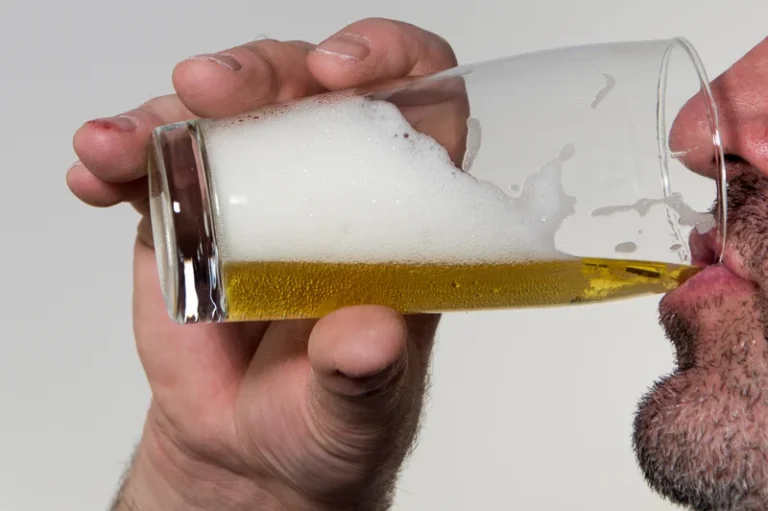
This 2021 research suggested that stress can lead to increases in blood pressure. If you’re worried about your or a loved one’s drinking habits, screening questionnaires like CAGE or AUDIT can help clarify the severity of alcohol use patterns and link them to possible health consequences. Rather than worrying about the carbohydrate content of beer, think of your alcohol intake from a health perspective – which, put simply, means it’s always best to have less. Assessing the risks and benefits of alcohol consumption remains an active area of research that may lead to major changes in official guidelines or warning labels. Of course, no one needs to wait for new guidelines or warning labels to curb their drinking.
Are there any health benefits to drinking alcohol?
As reviewed in the text, data from pharmacologic and transgenic approaches revealed an important role for oxidative stress and the hormone angiotensin II. “The stress level of someone in the midst of a cancer workup is likely quite high and may not reflect the typical stress level of an average person,” he notes. The Centers for Disease Control and Prevention (CDC) recommend doing at least 2.5 hours of moderate-intensity exercise per week, or around 30 minutes a day, 5 days a week. A 2020 study also suggests that both aerobic and resistance exercise may help delay or manage blood pressure; and blood pressure may be lower for up to 24 hours after exercise.
Alcohol-related health risks for individuals with high blood pressure

Investigators have used a variety of noninvasive tests to evaluate the acute effects of alcohol consumption on myocardial function and hemodynamics in healthy humans. As with isolated animal heart experiments, some investigators have found that acute Sober living house alcohol exposure (blood alcohol levels 40 to 110 mg%) depresses myocardial systolic function in humans (Delgado et al. 1975; Lang et al. 1985; Timmis et al. 1975). For example, in one study, the ejection fraction decreased by 4 percent after alcohol consumption (Delgado et al. 1975).
Can alcohol do damage to the cardiovascular system?
She explains that alcohol reduces sleep quality by increasing nighttime awakenings and decreasing restorative sleep. White shares that newer research shows it also disrupts our slow-wave sleep, which is crucial for physical restoration and memory consolidation. This article was written by an Accredited Practicing Dietitian from The Healthy Eating Hub. Alcohol also causes damage to the liver over time, especially if you drink too much.
Tips On How To Crush Dry January
Here are some common questions you may have about blood pressure and its relationship to your heart health. When you drink alcohol, it’s quickly absorbed into your bloodstream through the stomach and small intestine. From there, it travels to your bp alcohol liver for processing, but some circulates throughout your body, affecting your heart, arteries, and blood pressure. This rapid absorption is why alcohol can have almost immediate effects, from relaxation to raising your blood pressure, depending on how much and how often you drink.
- Chronic drinking can contribute to various CVDs, including hypertension, coronary artery disease, cardiomyopathy, and stroke, increasing the overall risk of heart-related complications.
- From its impact on heart health and mental well-being to liver function, immune support and sleep quality, understanding these risks empowers us to make more informed, mindful choices about alcohol consumption.
- However, among studies designed to examine the influence of beverage type, no differences have been found in CV disease outcomes or biologic markers, such as HDL-c (Mukamal et al. 2003a; Volcik et al. 2008).
- Low-to-moderate levels of alcohol consumption may initially improve endothelial function, whereas high daily levels and binge drinking may impair it.
Alcoholic Hepatitis: Spot The Signs, Reclaim Your Health

Moderate drinking, as defined by the American Heart Association, is drinking up to one drink per day for women and up to two drinks per day for men. A “drink” typically refers to 12 ounces of beer, 5 ounces of wine, or 1.5 ounces of distilled spirits like vodka or whiskey. Beyond narrowing your arteries, alcohol can also directly affect your heart muscle. Heavy drinking, in particular, can weaken the heart over time, reducing its ability to pump blood efficiently. This condition, known as cardiomyopathy, can further exacerbate high blood pressure and lead to a host of other cardiovascular issues. Even moderate drinking, if done consistently, can contribute to this strain.
Immediate effects of alcohol on blood pressure
The proportion of cardiomyopathy cases attributable to alcohol abuse has ranged from 23 to 40 percent (Piano and Phillips 2014). Recently, Guzzo-Merello and colleagues (2015) reported that, among 282 patients with a dilated cardiomyopathy phenotype, 33 percent had ACM. However, some reports indicate that alcohol-dependent women develop ACM after consuming less alcohol over a shorter period than do age-matched alcohol-dependent men (Fernández-Solà et al. 1997; Urbano-Marquez et al. 1989). Alcohol may affect various mechanisms implicated in ischemic preconditioning.

So, it’s important to think about your overall health and talk to a healthcare provider about your personal risk factors. And sure, we’ve all had a night here or there where we’ve had one too many and we know it. But it’s important to make sure those nights of overindulgence are the exception and not the rule.
Accelerated Protein Degradation
The findings suggest a protective effect of overexpression of IGF-1 in the transgenic animals (Zhang et al. 2014). Some investigators have suggested that drinking wine may offer more protection against CV disease because it contains polyphenols, such as resveratrol and flavonoids, which are micronutrients with antioxidant activity (Tangney and Rasmussen 2013). However, among studies designed to examine the influence of beverage type, no differences have been found in CV disease outcomes or biologic markers, such as HDL-c (Mukamal et al. 2003a; Volcik et al. 2008).
Food Budget Out of Control? Here’s How To Maximize Your Next Grocery Trip
- But it’s important to make sure those nights of overindulgence are the exception and not the rule.
- For example, certain levels of alcohol consumption that lower risk for CHD may increase it for other CV conditions, such as stroke.
- Excessive alcohol intake can lead to heart failure, damage to the heart muscle (cardiomyopathy), and an increased risk of coronary heart disease.
- Ethanol-mediated increases in autophagy therefore may be an important mechanism underlying the adverse myocardial effects of ethanol.
- However, patients with hypertension in their study included a high proportion of non-dippers, even when the effect of acute alcohol was considered.
For example, a 2018 study found that light drinkers (those consuming one to three drinks per week) had lower rates of cancer or death than those drinking less than one drink per week or none at all. If it’s not treated, over time high blood pressure can lead to fatty material (plaques) building up in the arteries, which increases the risk of a heart attack or stroke. From raising blood pressure to increasing the risk of a heart attack, drinking too much alcohol can have a serious impact on your heart. The acute effects of alcohol on the myocardium include a weakening of the heart’s ability to contract (negative inotropic effect). Data from isolated papillary and heart muscle cell (myocyte) experiments demonstrate that acute physiologic intoxicating doses of alcohol (80 mg% to 250 mg%) can have a negative inotropic effect (Danziger et al. 1991; Guarnieri and Lakatta 1990).











